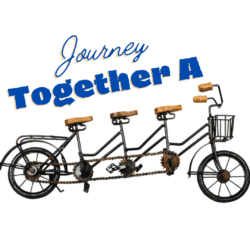Description
In all our time meeting students and hearing about what they like to do for fun, no single student has said, “I just love writing essays.” We are English teachers, and honestly, we don’t even say that! We get it. However, essay writing is a must-have skill that you will need through high school and college and even into the workplace. Further, writing actually builds brain power and makes you smarter. We are not lying to you!
Class Description:
In this class, students learn to pound out an essay in two weeks! In our live class, they will walk through the pre-writing stage, which is important! However, this is the step teens skip to GET IT DONE. They will learn that this step is critical in getting it done but in a way that is fast AND fabulous! The 5-paragraph essay is so much more than just how to organize the essay with an intro, body paragraphs, and a conclusion! We teach them how to fully develop and elaborate ideas, write with variety and sophistication, and how to present ideas and information logically and coherently with support for their thesis.
Then students will get busy writing their essays. After they send the final draft to their teacher, the instructor will give detailed feedback and suggestions. The student can go back and forth with the teacher on revisions as long as they are enrolled. These weeks are packed with instruction, workshop time, writing, practice, feedback, and revision, and students get good at churning out those 5-paragraph essays.
Class Schedule:
- The first week of the month: Pre-Writing (Homework is to draft the body paragraphs)
- The second week of the month: Elaboration
- The third week of the month: The Intro & Conclusion
- The fourth week of the month: Revising & Editing
- If there’s a fifth week, we work on grammar and improving sentence sophistication.
Monthly Topics:
- The month of July: Informative Writing (offering information on a well-known topic)
- The month of Aug: Informative Writing with Research (the how-to essay)
- The month of Sept: Informative Writing with Research (the biographical snapshot)
- The month of Oct: Informative Writing (scientific explanation)
- The month of Nov & Dec: Informative Writing (historical report)
- The month of Jan: Response to Literature (short story)
- The month of Feb: Response to Literature (poetry)
- The month of Mar: Literary Analysis (film)
- The month of Apr: Literary Analysis (short story)
- The month of May: Persuasive Writing (persuasion & rhetoric)
- The month of June: Argument Writing (the GOAT)
The Way We Roll:
- Student Motivation & Accountability – We use “workshop time” in class so students will write while the teacher “visits” them on their Google Document. The immediacy of the feedback/revision cycle with the instructor helps writers improve rapidly. Additionally, once we started using this method, we saw nearly a 100% completion rate in student essays!
- Homework – Students can expect to have homework after each live class. They will work 45-60 minutes weekly, depending on the assignment and how quickly they work. Students receive authentic and constructive feedback from the instructor that helps students correct their mistakes and fine-tune their skills. We integrate grammar in all aspects of instruction, and we hold students to a high standard of academic writing. We achieve this through daily mini-lessons and practice with sentence writing and using various sentence starters.
- Graphic Organizers – Students need graphic organizers to help them see the structure of a paragraph or essay and the writing process. This is how they learn to develop coherent ideas. They don’t figure out how to do this magically; the graphic organizers and the intentional, explicit teaching help them learn the skills!
- Student Mastery – Each class includes explicit, direct instruction with teacher modeling. Students are guided toward mastery of multiple writing skills and understandings so that they grasp the concepts and become independent. Students are held to a high standard of academic writing, including the use of grammar and the construction of sophisticated sentences.
- Teacher Feedback – The back-and-forth work between a student and teacher significantly benefits a student if it is done well. We follow best practices in this area with how we design class time, assignments, and routines. According to Pennington Publishing, effective writing feedback (or grading) is:
- Specific, not general
- Immediate, not postponed
- Routine with a revision / feedback cycle
- Explanatory
- The right amount
- Targeted to the most critical issues
- Varied (written, audio, and video comments)
- Holding students accountable
The Lemons-Aid Way: Our Approach to Teaching & Learning is Explicit!
Explicit teaching is a method of instruction students desperately need! Instead of leaving students to magically figure out how to write an essay, we teach explicitly, which is backed by a large body of evidence, and it’s how Mrs. Lemons teaches her undergraduate and graduate teacher candidates in college to teach! We do it this way because it’s how kids learn.
Explicit instruction is “a structured, systematic, and effective methodology for teaching academic skills. It is called explicit because it is an unambiguous and direct approach to teaching that includes both instructional design and delivery procedures. Explicit instruction is characterized by a series of supports or scaffolds, whereby students are guided through the learning process with clear statements about the purpose and rationale for learning the new skill, clear explanations and demonstrations of the instructional target, and supported practice with feedback until independent mastery has been achieved.”
–Explicit Instruction: Effective and Efficient Teaching by Anita L. Archer and Charles A. Hughes.
Anita Archer trained Mrs. Lemons in workshops, and it changed her teaching. All Lemons-Aid courses follow this philosophy in the form of I DO, WE DO, YOU DO. We move students forward toward mastery of skills.
High School Writing Series, The Lemon-Aid Way:
This class is part of a series that prepares students to do dual enrollment college classes or are entering college. The series gets progressively more difficult and are scheduled in order. You can still jump in whenever you’d like! Completing all of these classes, which takes about 6-7 months, will cover all necessary high school writing! They make up a complete high school writing plan.
- Foundations of Essay Writing (5 weeks/10 classes)
- Essay Essentials Flex: Build the Skills Necessary for High School Writing
- Essay Writing 911: Ongoing Essay Writing Practice with Feedback and Support
- Pen to Paper: Essential High School Writing – The Literary Analysis Essay
- Assert, Reason, and Counter: Essential High School Writing – The Argumentative Essay
- This, That, and the Other: Essential High School Writing – The Historical Research Essay
- College Application Essays: A Writing Workshop to Complete Your College Essay






Reviews
There are no reviews yet.